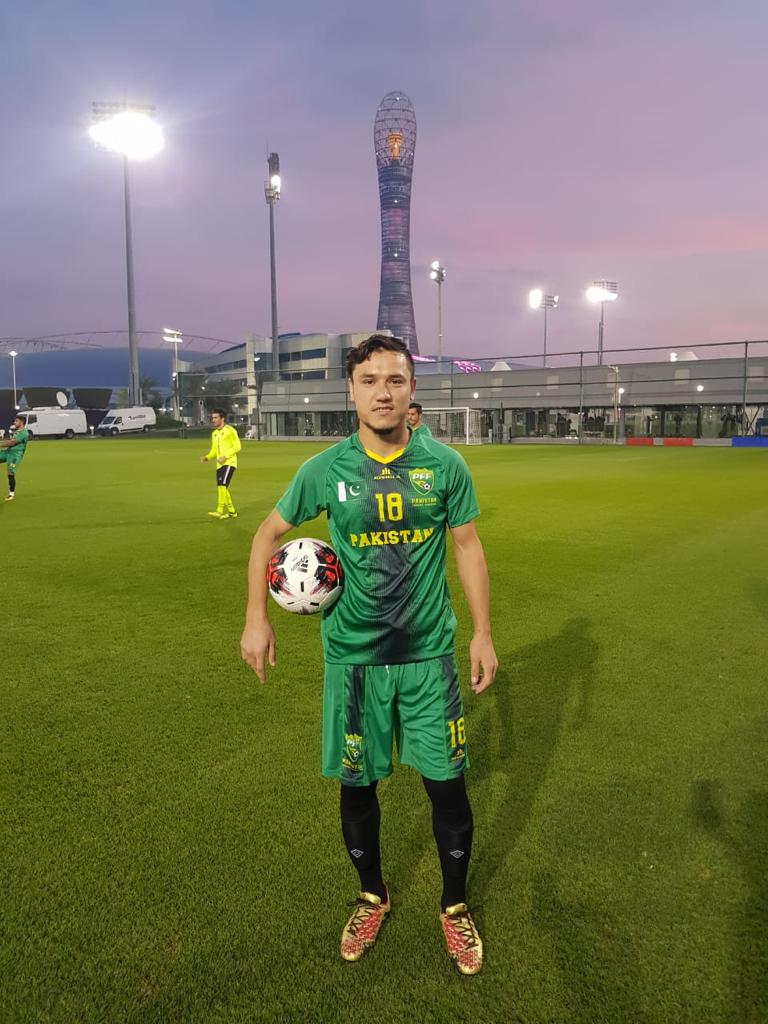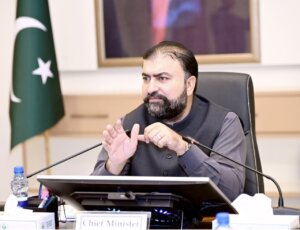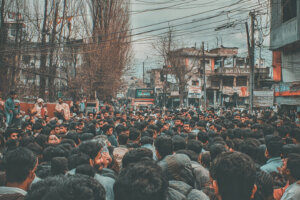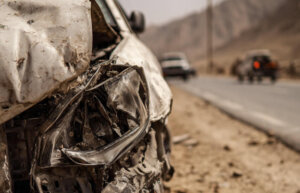By Feroza Juma Khan
LISTEN ARTICLE
Rajab Ali Hazara was 10 when he pursued his dream of playing football despite the challenges that came his way.
His family initially wanted him to focus on his studies, he said. However, Ali continued playing football as it was his passion.
The lack of resources to train for his dream sport didn’t discourage him. “In those days, there was no playground,” he said, “so I played on the streets.”
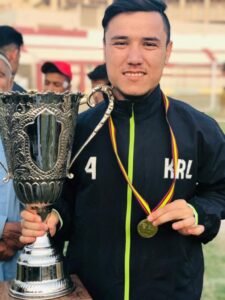
Ali participated in the under-13 format of football after seeing an announcement about the tournament. He was selected for the Balochistan under-13 football team, he said.
He also played for the under-14 and under-15 teams.
But when the under-16 championship was taking place at Malibagh, Quetta, Ali’s parents were wary about the security challenges in Balochistan, so they didn’t wish to see him train for the championship, he said.
“I have reached here with great difficulties,” Ali said, pointing to the challenges that he faced early in his career.
The Hazara community is an ethnic minority in Balochistan, the southwestern province of Pakistan. Approximately 800 Hazaras were killed in 2012 and 2013 in attacks of sectarian violence, making the situation precarious in the province.
Ali participated in the 10-day training camp despite security threats and against his family’s protests, he said. His hard work paid off when he was selected for the Balochistan Championship and went to Lahore Football house.
Ali has played nine international football games. On the first international tour, he went to Nepal for 45 days and played against the football teams of Bangladesh, Nepal, Sri Lanka, India and Afghanistan.
In 2014, he was selected as a captain for the Pakistan national football team after playing in the under-17 world cup qualifying round, he said.
In 2016 he played with the Pakistan police department for the National Champion Challenge Cup. Pakistan army and air force were also participants in the sports game.
After seeing his performance, the Khan Research Laboratories team (KRL) invited him to play by their side. He has played 50 matches for the KRL. The team has a record of winning two cups and one league. They went to Qatar as a senior team in 2018, he said.
Ali has 5 medals to his name. He turned his passion to train an upcoming generation of youth who love football.
Opening Hazara Football Academy
Ali said he wanted to make a football ground for young Hazara football players.
However, it was not possible due to a lack of resources.
He decided to open a training academy instead with the help of a few senior citizens and his friends in the community with similar interests as him. In 2014 he opened the Hazara Football Academy. “We don’t have as many resources as other countries and we are running everything on our own,” Ali said in an interview.
Initially, the academy only trained men players. “It is our dream to see our youth progress and make the country proud,” he said.
In 2020, the academy expanded the training program to women players too. It is providing a future for talented players who play on the streets instead of playing in football stadiums.
Feroza Juma Khan is an undergraduate journalism student at Sardar Bahadur Khan Women’s University. She is passionate about journalism and wants to tell the important stories of Balochistan.
